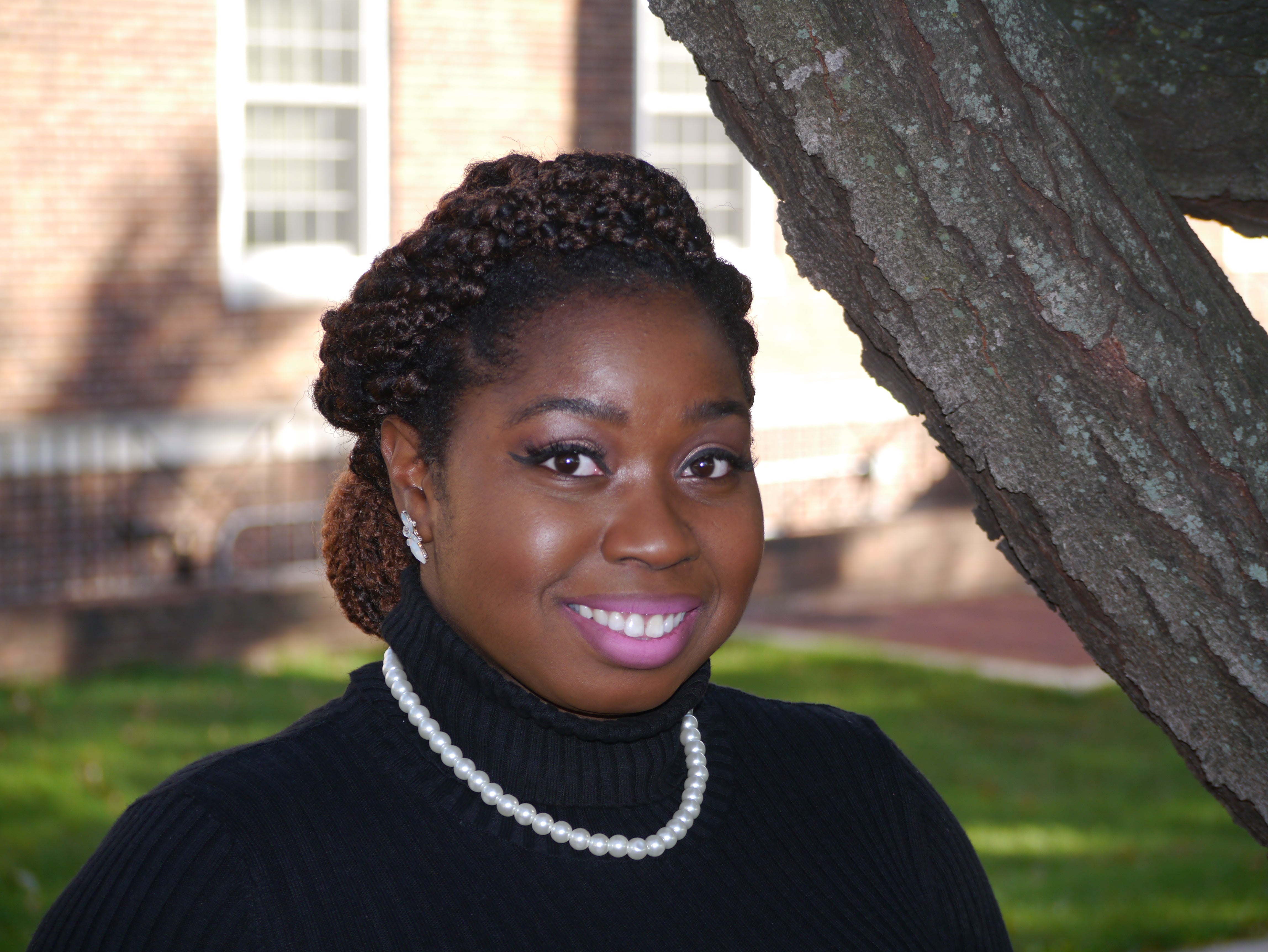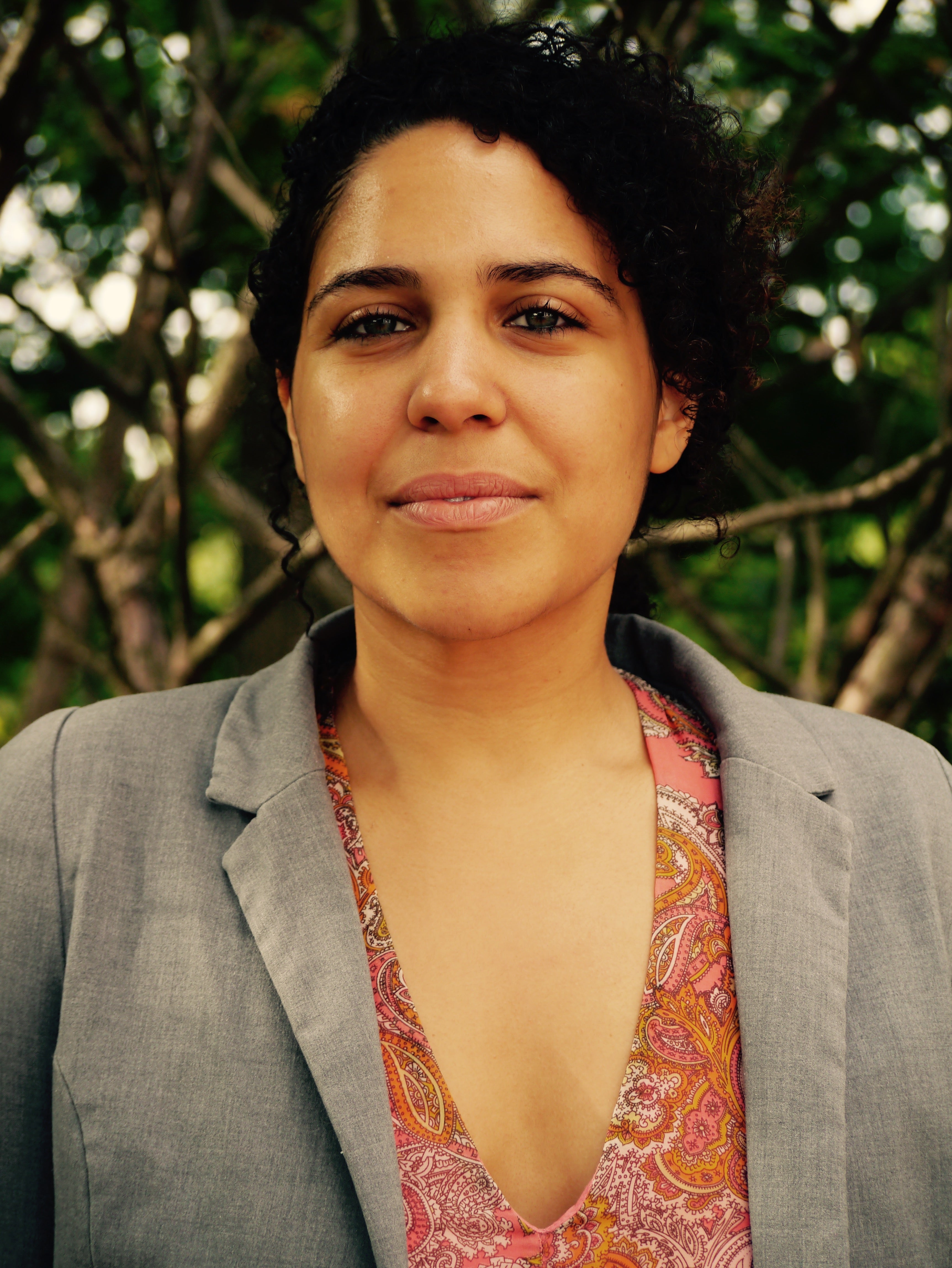 Two women, one story. Marisa Franco, doctorate in hand from the Counseling Psychology program, is off to a tenure-track faculty position at Georgia State University this month. Dominique Young, with several more years of graduate school ahead, just finished her first year as a doctoral student at the University of Maryland’s English Department.
Two women, one story. Marisa Franco, doctorate in hand from the Counseling Psychology program, is off to a tenure-track faculty position at Georgia State University this month. Dominique Young, with several more years of graduate school ahead, just finished her first year as a doctoral student at the University of Maryland’s English Department.
Both have actively sought the professoriate, both are African-American, and both have a seat at a table often reserved for others. Their experience is inherently tied to our work as educators, mentors, and role models within institutions of learning. And a helpful reminder to regularly check the commitment to supporting underrepresented graduate students.
As a child, Dominique Young had challenges. But she also believed that her circumstances were not predictive of her future. From elementary school and onward, she surrounded herself with mentors - a tapestry of dedicated colleagues, parents of friends, faculty members, and administrators. They were present during her time at Kingsborough Community College, Brooklyn College, the Institute for the Recruitment for Teachers (IRT) program, and in the present day. And they were there when she self-consciously applied for a Mellon Mays Undergraduate Fellowship (MMUF).
Young hesitated because she did not believe that academic achievement was anything more than being responsible to those who care about you. Coming from a high school in East New York, Brooklyn, she saw dedicated teachers who, despite having limited resources, were able to inspire and motivate students. "When you see teachers investing their unpaid time in students or using their own money on classroom resources to ensure that you pass, graduate, and go to college, you are compelled to push forward," says Young.
Becoming an MMUF scholar was a turning point for Dominique Young. She began to see herself as a researcher for the first time. She found a confident voice, both in the classroom and in her writing, among a community of scholars. "I also began to see myself as someone who is a part of a greater movement for social justice, and someone whose path can perhaps inspire others," says Young.
 About this time, Marisa Franco was doing community-based research in Haiti. Through the Graduate School’s International Graduate Research Fellowship, she spent a summer working with children while also teaching an intervention course in Haitian-Creole. It was the perfect match between her interests in issues of equity and psychology. "I was intentional in choosing a field that would allow me to amplify and express my values, and give me the tools to take action on behalf of these values," says Franco.
About this time, Marisa Franco was doing community-based research in Haiti. Through the Graduate School’s International Graduate Research Fellowship, she spent a summer working with children while also teaching an intervention course in Haitian-Creole. It was the perfect match between her interests in issues of equity and psychology. "I was intentional in choosing a field that would allow me to amplify and express my values, and give me the tools to take action on behalf of these values," says Franco.
And when research is deeply personal, it has a certain energy and identity. People recognize its strength, and there is compulsion to support it. Over the course of her doctoral tenure, Marisa Franco received this kind of encouragement on her work. She was awarded everything from the coveted University of Maryland Graduate School’s Flagship Fellowship and the McNair Graduate Fellowship to the University’s Distinguished Teaching Assistant Award, and Alliance for Graduate Education and the Professoriate (AGEP) Fellowship.
These fellowships also came with significant financial assistance. The McNair, in particular, provided necessary support for the first year. "It was the most stressful year in my Ph.D. program. I also got introduced to colleagues who were equally passionate about their research for and by ethnic minorities. As underrepresented students, we face extra barriers related to finances, feelings of isolation, and managing racial dynamics, so having the ability to just focus on academics is imperative," says Franco.
Like Dominique Young, Franco also developed a robust network, even if asking for help didn’t always come naturally to her. "As a woman of African descent, my proclivities have always been towards pushing through, making do, and taking care of it. Asking for help, for me, was synonymous with imposing on others, and admitting to my own limitations. Also, I think people are less likely to be attuned to black women's vulnerability and need for help, because black women are more often perceived as 'strong' or else 'angry,'" says Franco.
In reflecting on her educational journey, Young adds, "I think it is important for graduate programs to know the history of the relationship between students of color and education in this country and to be aware of the systemic issues that contribute to the racial disparities in higher education. We need programs to recognize our diverse needs and to create and sustain safe spaces for students of color on campus."
Next fall, both women will start a new teaching experience. Young has her sights on undergraduates for the first time. She says, she is looking forward to using the pedagogical skills learned at IRT to "create an inclusive learning environment for students and to encourage them to think critically." Franco starts her faculty career this month, teaching Multicultural Psychology in the Counseling and Psychological Services Department at Georgia State. If she has one piece of advice to give to other underrepresented students it would be this: "be intentional and proactive about building community, if you find people you connect with, have coffee."
More information: Dominique Young and Dr. Marisa Franco.
Written by Anna De Cheke Qualls
